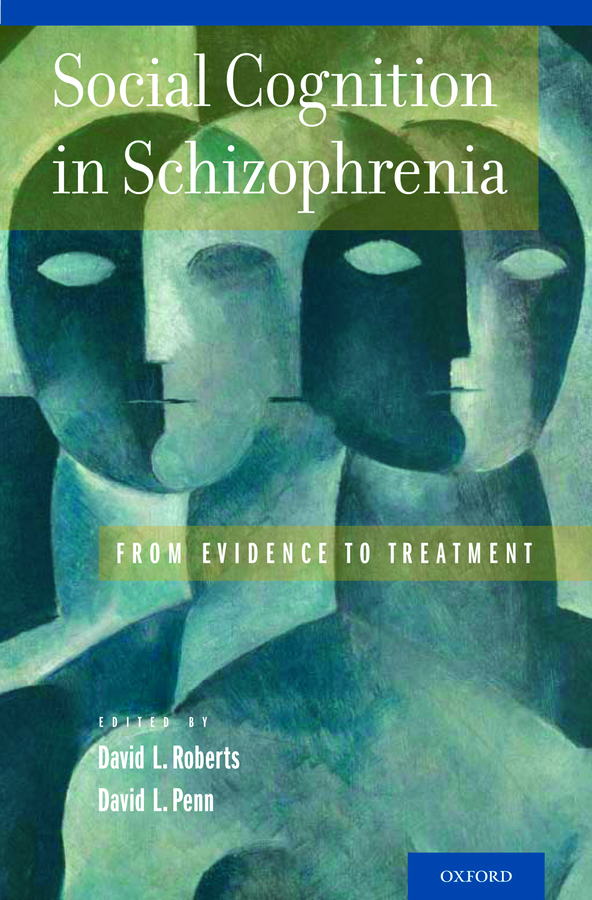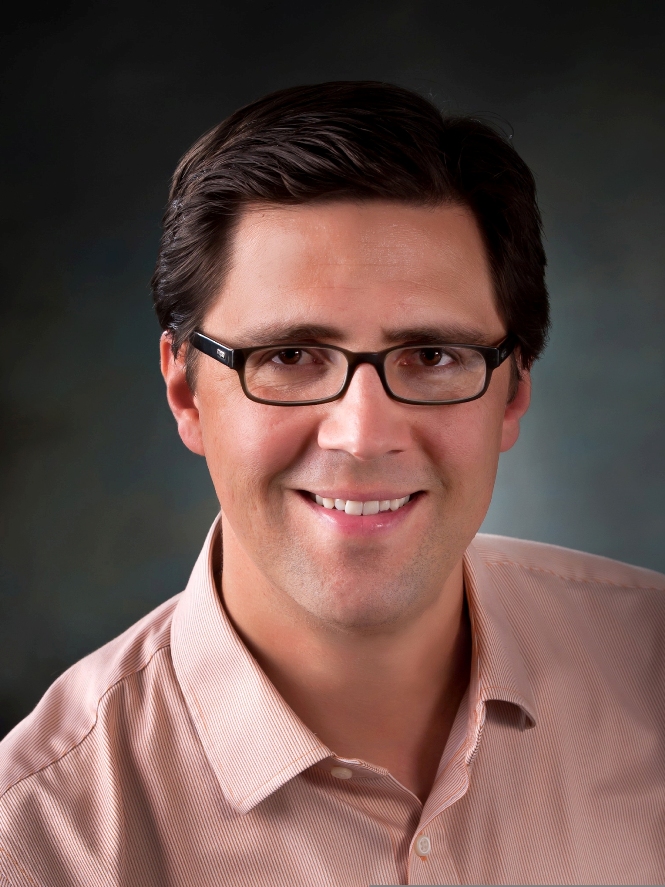
David Penn (far left) and Dave Roberts (across from Penn, far right) are making a difference in the lives of schizophrenia patients around the world.
The special mentor-mentee relationship between David Penn and Dave Roberts has led to improving the social lives of schizophrenia patients around the world.
It all started in a psychology lab at Carolina.
Penn is the Linda Wagner-Martin Distinguished Professor of Psychology in UNC’s College of Arts and Sciences. Roberts (Ph.D. ’08), now an assistant professor in the department of psychiatry at the University of Texas Health Science Center in San Antonio, was Penn’s student. Roberts works in the Division of Schizophrenia and Related Disorders.
When people think of schizophrenia, they often think of hallucinations and delusions, but patients say one of their chief frustrations is figuring out how to interact in social situations and how to develop social relationships, Penn said. Scientists use the term “social cognition” to refer to the mental operations underlying social interaction, including the ability to infer another person’s emotions from facial expressions, for instance.
 In 2004, Roberts was doing a clinical rotation at John Umstead Hospital in Butner when he noticed that the schizophrenia patients didn’t seem fully engaged in the existing treatment process. But when they watched television, particularly episodes of shows like “Seinfeld” and “Curb Your Enthusiasm” — which feature socially awkward situations — Roberts saw a spark of recognition. There was laughter among the patients. And shared understanding.
In 2004, Roberts was doing a clinical rotation at John Umstead Hospital in Butner when he noticed that the schizophrenia patients didn’t seem fully engaged in the existing treatment process. But when they watched television, particularly episodes of shows like “Seinfeld” and “Curb Your Enthusiasm” — which feature socially awkward situations — Roberts saw a spark of recognition. There was laughter among the patients. And shared understanding.
Roberts knew he was on to something. He went back to Penn, who encouraged him to develop a new treatment approach based on social cognition, with video as one of the components. They wrote their own scripts and hired actors to create what a 2007 New Yorker story featuring their research called “cringe-worthy situations.”
The result was Social Cognition and Interaction Training or SCIT, a group therapy treatment that is designed to improve the social functioning skills of people with schizophrenia.
The numbers tell the story of SCIT’s success. The treatment manual and videos have been translated into Mandarin, Cantonese, Portuguese, Spanish, Finnish, Hebrew and Japanese. Roberts has made SCIT the centerpiece of his professional career. The duo have trained more than 400 clinicians in the United States, Japan, England, Portugal, Finland, China, Hong Kong and Australia. Penn just returned from a training session in France. Two of their colleagues at UNC have developed SCIT-A, a version tailored to people with autism-spectrum disorders.

Penn will be recognized on Nov. 9 in Atlanta with an Elizabeth Hurlock Beckman Award — given to only 10 professors from universities across the U.S. — for inspiring a former student to make a difference in his community.
Roberts nominated his mentor for the award, writing “David always reminded me that our laboratory work means nothing if it cannot be put to the service of patients living in the community. This perspective so pervades David’s approach as a mentor that to me the need to work directly with patients and front-line clinicians feels like an imperative.”
Roberts said Penn encouraged him to take the lead on developing SCIT. Penn insists that’s what a good mentor should do.
“Like anything else, when you have good students, they make you better; they push you. It’s a relationship that is very much reciprocal,” Penn said. “When you see that spark go off in students, you know they’re going to run with it, and I knew [SCIT] would have legs. As a mentor, you want to find out, ‘What is it that gets the student excited about the research?’”
Roberts wrote that where his mentor could have “used his expertise to guide and shape my work, instead he used his expertise to prop up, clarify and connect my fledgling ideas.”
“David really deeply believes in the cross-fertilization of clinical work and research,” Roberts said. “He’s a good model for how to be a good person in the world.”
The two went on to edit a book together, with Roberts as lead author. Social Cognition in Schizophrenia: From Evidence to Treatment was published by Oxford University Press in 2013. Oxford Press will also publish the SCIT manual next year. And Roberts is working on an iPad app to enable SCIT to be delivered to patients who live in rural areas or who lack transportation to mental health clinics.

The Beckman Award is a selective honor, and Penn is appreciative of the recognition. Still, he confesses that the congratulations card his current graduate students gave him for receiving the award means more to him than the award itself.
“I get to work with people like Dave Roberts, a brilliant young man and a nice guy,” Penn said. “It becomes not about the publications, not about the grants, but about potentially something you can do to make a difference.”
[ By Kim Weaver Spurr ’88]
Published in the Spring 2014 issue | Research, The Scoop
Read More

Ashby receives alumni faculty service award
Valerie Ashby, chair of the UNC chemistry department, received a…

Solar breakthroughs: Harnessing the power of the sun when it’s not shining
UNC scientists led by chemist Tom Meyer at the Energy…

Google Gaggle: Six alumnae land jobs with search giant
The “Googlers” all benefited from UNC’s minor in entrepreneurship in…

